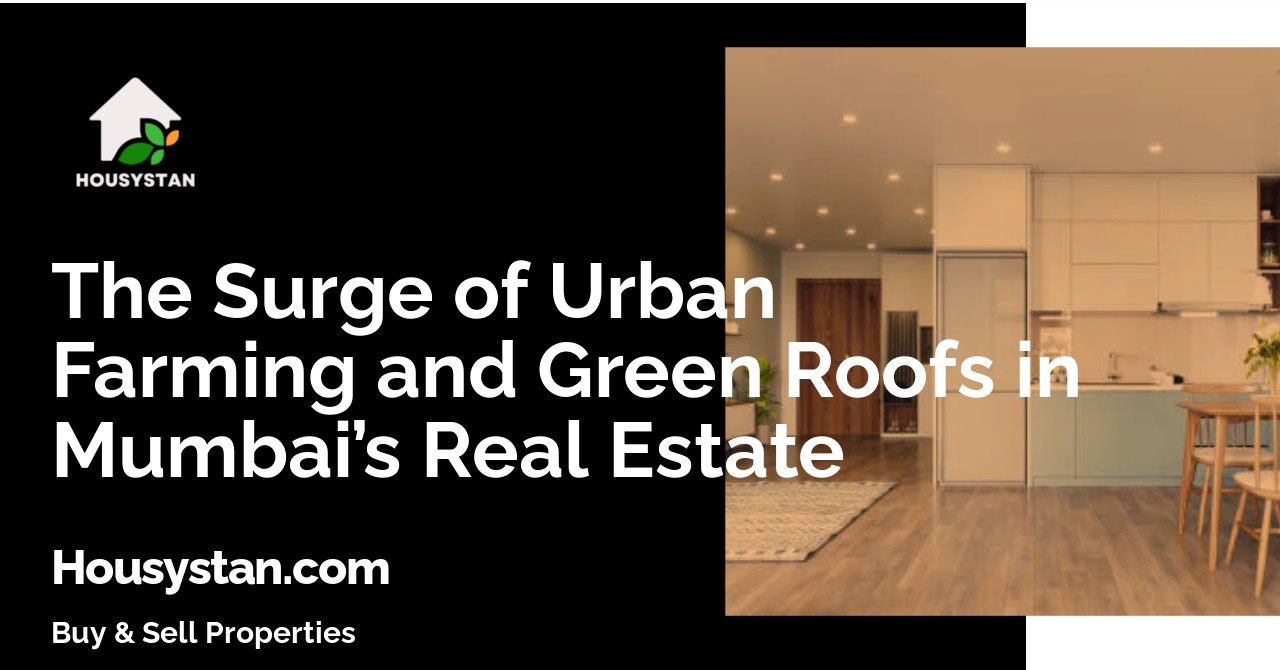The Surge of Urban Farming and Green Roofs in Mumbai’s Real Estate
Read latest blogs and articles from Housystan

The Information mentioned here was last updated on:
9/1/2026Mumbai, a bustling metropolis known for its breathtaking skyline and vibrant culture, is undergoing a transformative shift in its real estate sector. The city’s rapid urbanization has led to a creative solution: the rise of urban farming and green roofs. These sustainable initiatives are not only enhancing the aesthetic appeal of residential and commercial buildings but are also playing a pivotal role in promoting environmental wellness across Mumbai’s neighborhoods. Let’s delve into how these eco-friendly trends are reshaping the future of Mumbai’s property landscape.
Urban farming in Mumbai has gained immense momentum, with residents, developers, and city planners recognizing the value of integrating nature within urban spaces. Rooftop gardens and vertical farming setups are becoming commonplace in apartment complexes, office towers, and even shopping centers. By cultivating vegetables, herbs, and ornamental plants on rooftops and balconies, Mumbaikars are addressing food security, reducing urban heat, and improving air quality. This movement encourages local, fresh produce and minimizes the carbon footprint associated with transporting food over long distances.
Green roofs, another innovative trend sweeping through Mumbai real estate, offer more than just visual appeal. These living rooftops provide natural insulation, helping buildings remain cooler during the city’s sweltering summers. They also manage rainwater runoff, thus alleviating pressure on Mumbai’s drainage systems during monsoon season. From Andheri to Bandra, and Powai to Lower Parel, developers are embracing green roofs as a strategy to meet sustainability goals and attract environmentally conscious buyers and tenants.
- Verified Tenants/Buyers
- Unlimited Property Listing
- Zero subscription/charges fee
For property investors and homebuyers in Mumbai, buildings with urban farms and green roofs represent a future-ready investment. These features not only boost property value but also contribute to healthier, more connected communities. As municipal authorities introduce incentives and policies to support sustainable building practices, the adoption of urban farming and green roofing is set to accelerate further across Mumbai’s diverse localities.
In summary, the surge of urban farming and green roofs in Mumbai’s real estate sector highlights the city’s commitment to sustainability and innovation. As more developers embrace these green solutions, Mumbai is poised to set a benchmark for eco-friendly urban living not only in India but across the globe.